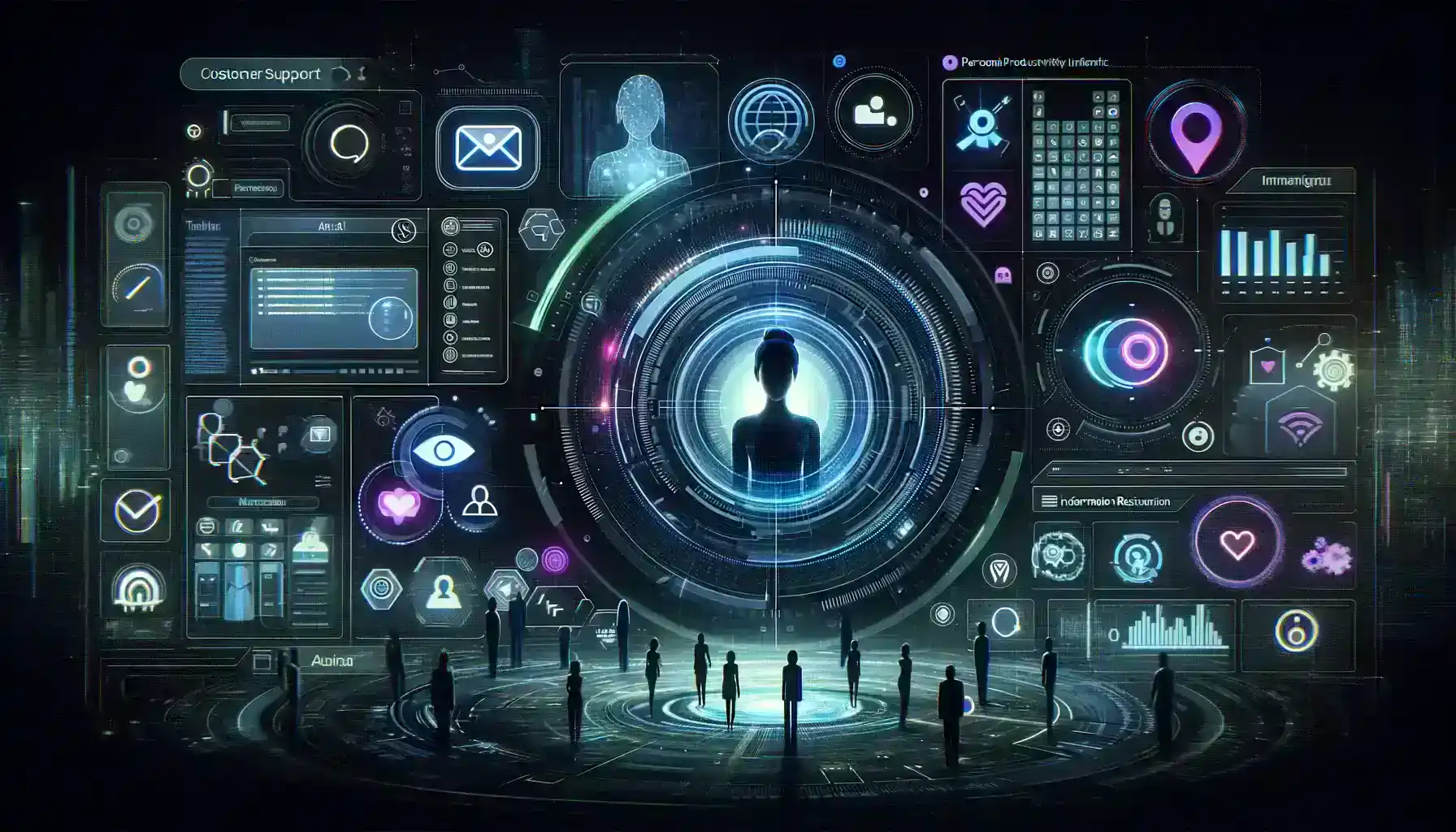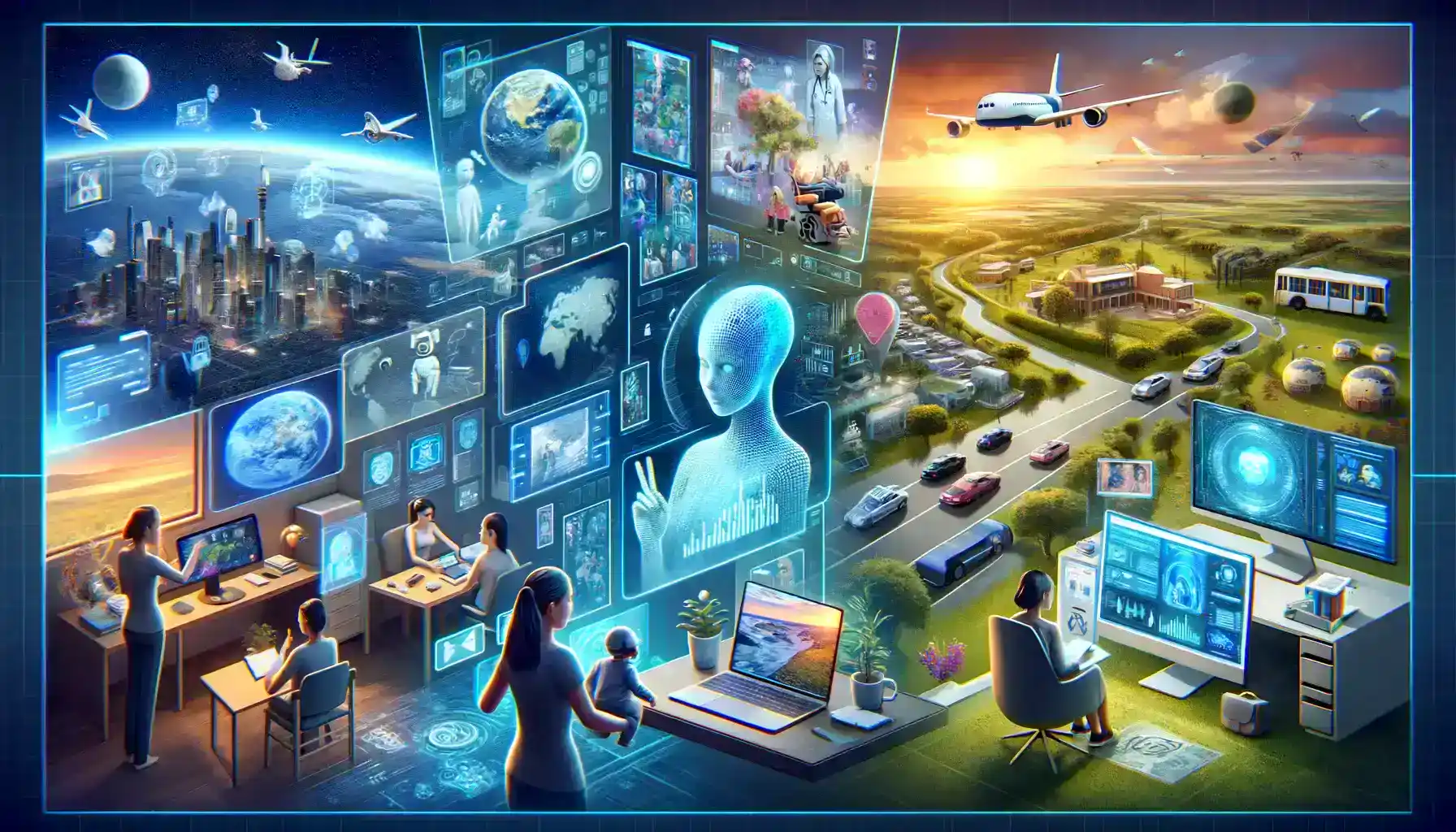Table of Contents
In the ever-evolving world of artificial intelligence, the development and assessment of general AI assistants have become increasingly critical. These versatile AI systems are designed to handle a wide range of tasks and queries, from answering questions to performing complex actions.
To ensure that they meet the highest standards of performance and functionality, researchers have introduced a groundbreaking benchmarking tool called GAIA (General AI Assistant Benchmark). In this article, we will explore how GAIA is revolutionizing the field of AI by providing a comprehensive framework for testing and evaluating general AI assistants.
In AI’s dynamic landscape, the role of general AI assistants is pivotal. These adaptable systems are entrusted with diverse tasks, demanding excellence. Enter GAIA, a revolutionary benchmarking tool. This article explores GAIA’s transformative impact on AI by offering an all-encompassing framework for AI assistant evaluation.
The Significance of GAIA and General AI Assistants
General AI assistants hold immense promise in reshaping the way we interact with technology. Unlike specialized AI systems that excel in a single domain or task, general AI assistants are engineered to be adaptable, learning, and versatile. They can understand natural language, interpret context, and provide meaningful responses, making them invaluable in a wide range of applications.

Customer Support: AI assistants can provide efficient and round-the-clock customer support by addressing common queries, troubleshooting issues, and routing more complex problems to human agents when necessary.
Personal Productivity: They can help users manage their schedules, set reminders, draft emails, and even provide recommendations for improving productivity.
Information Retrieval: General AI assistants are adept at searching the internet for information and providing users with accurate and timely answers to a wide range of questions.
Automation of Tasks: They can execute tasks like sending messages, making reservations, and ordering products online, saving users time and effort.
Comprehensive Evaluation Framework
GAIA offers a comprehensive evaluation framework that encompasses a wide array of tasks and scenarios, allowing AI developers to assess their assistants’ capabilities thoroughly. For instance, it covers tasks like natural language understanding, generation, and reasoning.
GAIA, the General AI Assistant Benchmark, introduces a groundbreaking approach to evaluating AI assistants that goes beyond simplistic assessments. Its comprehensive evaluation framework is designed to provide a holistic view of an AI assistant’s capabilities. Here’s a closer look at this framework.
Wide Array of Tasks and Scenarios: GAIA does not confine its evaluation to a limited set of predefined tasks. Instead, it casts a wide net, encompassing a diverse range of tasks and real-world scenarios that an AI assistant may encounter. These scenarios mirror the complexity of human interactions and problem-solving.
Natural Language Understanding: One of the cornerstones of GAIA’s evaluation framework is the assessment of natural language understanding. This involves evaluating how well the AI assistant comprehends and interprets user queries, regardless of their phrasing or context. For instance, when a user asks, “What is the capital of France?” GAIA scrutinizes the assistant’s ability to accurately decipher the user’s intent, which is to obtain information about the capital city of France.
Information Retrieval: Beyond understanding user queries, GAIA evaluates the AI assistant’s proficiency in retrieving accurate information. In the given scenario, when the user seeks to know the capital of France, GAIA checks if the assistant can access its knowledge base or external sources and extract the correct answer, which, in this case, is “Paris.”
Coherent Response: GAIA takes the evaluation a step further by examining how well the AI assistant can deliver the information coherently. It assesses whether the assistant can not only provide the correct answer but also present it in a clear and contextually relevant manner, enhancing the overall user experience.
Real-World Simulations
One of GAIA’s unique features is its ability to create real-world simulations, mimicking the complexities of human interactions. This is particularly valuable in assessing AI assistants’ performance in dynamic, unpredictable environments. For instance, an AI assistant may be tasked with helping a user plan a vacation, including booking flights, and hotels, and providing recommendations for sightseeing. GAIA can simulate such scenarios to gauge the assistant’s efficiency, accuracy, and adaptability.

Instances and Companies Utilizing Real-World Simulations:
Customer Service Applications: Many companies are using real-world simulations to evaluate their AI-driven customer service chatbots or virtual agents. These simulations replicate diverse customer inquiries and issues that may arise in a customer support context. By doing so, companies can ensure that their AI assistants can effectively handle a range of customer interactions, from resolving technical issues to answering product-related queries.
Virtual Personal Assistants: Developers of virtual personal assistants, like those found in smartphones or smart speakers, benefit from real-world simulations to fine-tune their AI’s performance. These simulations can mimic various user scenarios, such as setting reminders, sending messages, providing navigation instructions, and offering recommendations for nearby restaurants or entertainment options.
Travel and Hospitality: In the content mentioned earlier, AI assistants helping users plan vacations, including booking flights, and hotels, and providing sightseeing recommendations, can greatly benefit from real-world simulations. Companies in the travel and hospitality industry can use GAIA-like simulations to evaluate AI systems’ efficiency in coordinating complex travel plans and ensuring that user experiences are seamless.
Healthcare: AI-powered healthcare assistants can also leverage real-world simulations to assess their performance. Simulations may involve scenarios such as assisting with patient appointments, answering medical queries, and providing medication reminders. This ensures that AI assistants can handle diverse healthcare-related interactions accurately and empathetically.
E-Learning and Education: In the education sector, AI-driven virtual tutors or assistants can be evaluated through simulations that mimic the varied learning scenarios students may encounter. These simulations may involve personalized lesson recommendations, assistance with homework, and adapting to individual learning styles.
Multi-Modal Capabilities
In today’s AI landscape, multi-modal capabilities (combining text, speech, and images) are essential for providing rich user experiences. GAIA evaluates AI assistants’ proficiency in handling various data types. For example, it can assess an assistant’s ability to understand a spoken request, retrieve relevant information from a visual database, and generate a text-based response, such as describing the contents of an image.
Combining Text, Speech, and Images: Multi-modal AI assistants excel at combining and interpreting different modes of communication, such as text, speech, and images. This means they can understand spoken queries, process text-based messages, and analyze visual information simultaneously, offering a seamless and intuitive interaction.
Enriched User Experiences: By seamlessly integrating text, speech, and images, multi-modal AI assistants provide richer and more interactive user experiences. For instance, they can offer visual descriptions of objects, translate spoken language into text, and generate natural language responses to text inputs, catering to users’ preferences and requirements.
Enhanced Accessibility: Multi-modal capabilities also enhance accessibility. Users with varying needs, such as those with visual impairments, can benefit from AI assistants that can process and generate information in multiple modalities. For example, a user who cannot see can interact with an AI assistant through voice commands and receive spoken responses.
Scalability and Customization

GAIA is designed to be scalable and customizable, allowing researchers to tailor assessments to specific use cases and domains. Whether it’s evaluating a healthcare AI assistant’s diagnostic accuracy or a virtual shopping assistant’s product recommendations, GAIA can adapt to the needs of different applications and industries.GAIA’s flexibility allows tailored assessments for diverse industries, enhancing AI’s impact.
The significance of scalability and customization in GAIA lies in their adaptability to diverse industries and use cases. Here are some key points highlighting their importance:
Relevance: Customization ensures that AI assessments are highly relevant to specific industries, allowing organizations to evaluate their AI assistants based on industry-specific criteria.
Precision: Customized benchmarks provide a more precise evaluation of AI assistant capabilities, enabling organizations to identify strengths and weaknesses accurately.
Flexibility: Scalability and customization allow for assessments that can grow or evolve as AI technology advances or organizational needs change.
Applicability: GAIA’s adaptability makes it applicable across a wide range of sectors, ensuring that AI assessments meet the unique requirements of each industry.
Conclusion
GAIA represents a significant leap forward in the field of AI benchmarking for general AI assistants. Its comprehensive evaluation framework, real-world simulations, support for multi-modal capabilities, and scalability make it a powerful tool for researchers and developers. As AI continues to play an increasingly integral role in our daily lives, the need for robust and versatile AI assistants becomes more apparent. GAIA not only sets new standards for evaluating these assistants but also paves the way for the continuous improvement of AI technology. With GAIA, we are indeed witnessing the dawn of a new era in AI benchmarking—one that promises to drive innovation and ensure that AI assistants meet the ever-growing expectations of users worldwide.
GAIA is a game-changer in AI benchmarking for general AI assistants. Its comprehensive framework, real-world simulations, multi-modal support, and scalability empower developers. As AI’s significance grows, versatile AI assistants become vital, and GAIA sets new evaluation standards, fueling innovation and meeting user expectations. It’s a pivotal moment, ushering in a new era in AI benchmarking.